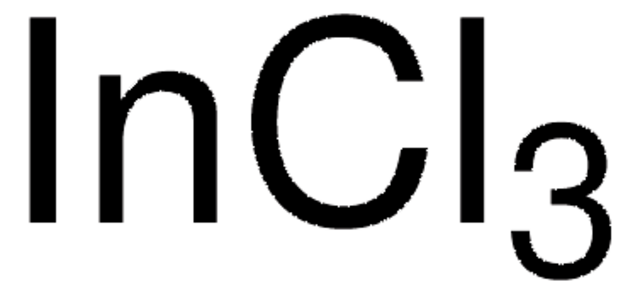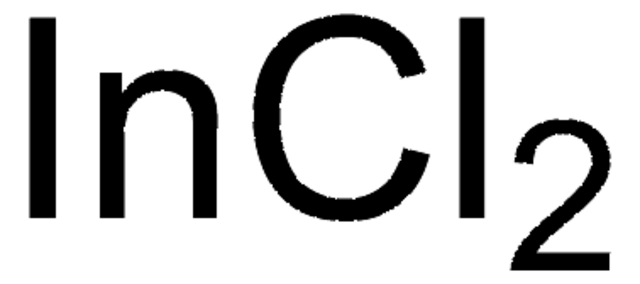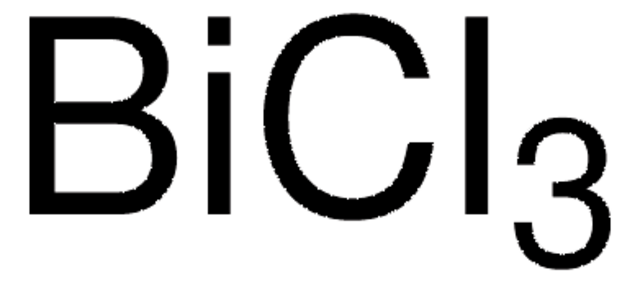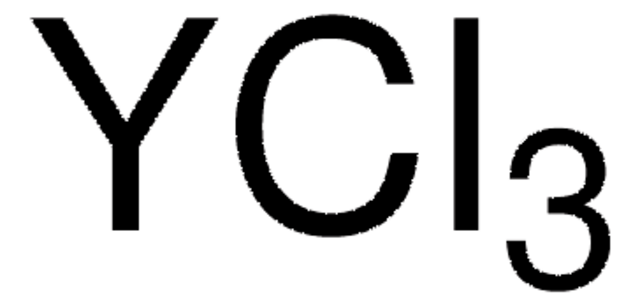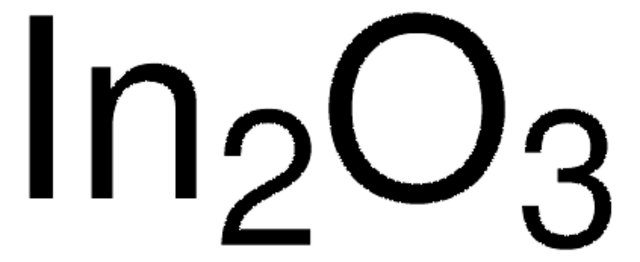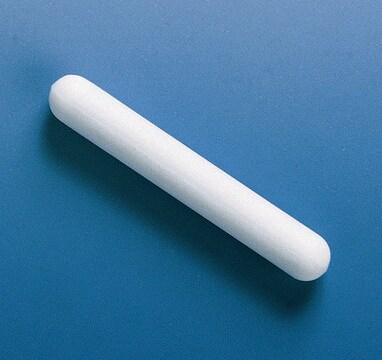203440
Indium(III) chloride
99.999% trace metals basis
Sinónimos:
Indium trichloride
About This Item
Productos recomendados
Quality Level
assay
99.999% trace metals basis
form
powder or flakes (or chunks)
reaction suitability
reagent type: catalyst
core: indium
impurities
≤15.0 ppm Trace Metal Analysis
density
3.46 g/mL at 25 °C (lit.)
SMILES string
Cl[In](Cl)Cl
InChI
1S/3ClH.In/h3*1H;/q;;;+3/p-3
InChI key
PSCMQHVBLHHWTO-UHFFFAOYSA-K
¿Está buscando productos similares? Visita Guía de comparación de productos
General description
Application
- As a catalyst for the preparation of 1,3-dithiolanes from aldehydes and ketones.
- For acylation of phenols, thiols, alcohols, and amines.
- As a precursor to fabricate Indium tin oxide(ITO) thin films for dye-sensitized solar cells.
- To prepare solution-processed oxide semiconductor thin-film transistors (OS TFTs) that can be used in display devices.
signalword
Danger
hcodes
Hazard Classifications
Aquatic Chronic 3 - Eye Dam. 1 - Skin Corr. 1C - STOT RE 1 Inhalation
target_organs
Lungs
Storage Class
6.1D - Non-combustible acute toxic Cat.3 / toxic hazardous materials or hazardous materials causing chronic effects
wgk_germany
WGK 3
flash_point_f
Not applicable
flash_point_c
Not applicable
ppe
Eyeshields, Faceshields, Gloves, type P3 (EN 143) respirator cartridges
Elija entre una de las versiones más recientes:
¿Ya tiene este producto?
Encuentre la documentación para los productos que ha comprado recientemente en la Biblioteca de documentos.
Los clientes también vieron
Artículos
Solvothermal synthesis is a method for preparing a variety of materials such as metals, semiconductors, ceramics, and polymers.
Spectral conversion for solar cells is an emerging concept in the field of photovoltaics, and it has the potential to increase significantly the efficiency of solar cells. Lanthanide ions are ideal candidates for spectral conversion, due to their high luminescence efficiencies and rich energy level structure that allows for great flexibility in the upconversion and downconversion of photons in a wide spectral region (NIR-VIS-UV).
Colloidal quantum dots (CQDs) are semiconducting crystals of only a few nanometers (ca. 2–12 nm) coated with ligand/surfactant molecules to help prevent agglomeration.
Nuestro equipo de científicos tiene experiencia en todas las áreas de investigación: Ciencias de la vida, Ciencia de los materiales, Síntesis química, Cromatografía, Analítica y muchas otras.
Póngase en contacto con el Servicio técnico